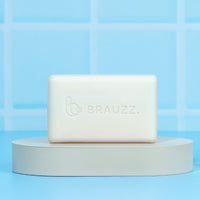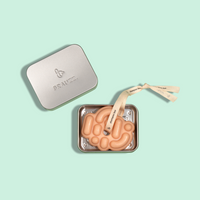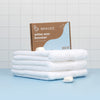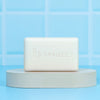Dishwashing tablets or dishwashing liquid: which is more ecological?
There are many household tasks that consume energy; washing dishes is one of them.
Today, as many as 60% of families have a dishwasher to help with this household task. But isn't it more energy efficient to wash dishes by hand instead of using the dishwasher?
The hand vs. the machine
Washing dishes by hand may initially seem like the most energy-efficient option because you don't need electricity. But there are other factors to consider. Like water consumption, for example. Washing dishes by hand requires much more water than a dishwasher. This means that if you do the dishes by hand, you use more energy to heat that water. In addition, it also takes more time and physical effort to do the dishes by hand, which also consumes energy.
It is also true that modern dishwashers are designed to be as energy efficient as possible. The more modern, the less water and energy they consume. Moreover, many dishwashers also have energy-saving options, such as an eco program or a half-load setting, which further reduces energy consumption.
Water consumption
Do you have a dishwasher? If so, it consumes about 12 liters per wash. Mind you, if you have an older appliance, the number of liters per wash may be as high as 17 liters.
For a manual wash of the same amount of dishes, you would need 45 liters of water. Significantly more water than a dishwasher, in other words.
Energy consumption
There are also a number of factors involved in energy consumption. Many dishwashers do dishes at 70 to 95 degrees while 40 degrees is actually sufficient to get dishes clean clean (unless there is caked-on residue on them). Using hot water takes a lot of energy.
Less hot water use, as with hand dishwashing, is thus a more sustainable choice. Still, don't lose sight of the fact that you also need to heat water for hand washing dishes. Even if you pre-rinse the dishes with hot water, or wash under the running tap instead of in the filled sink, a dishwasher may be a better choice. In addition, most modern dishwashers have an eco function, which allows you to reduce energy and water consumption.

The dishwasher wins
All this in mind, we could say that the dishwasher is a more sustainable way to do your dishes than washing them by hand.
Yet we also want to emphasize that a lot depends on several factors: is it an energy-efficient and recent appliance or not, how often the dishwasher is on, whether the dishwasher is fully loaded or half-full, whether the dishwasher is connected to the general water heater or has its own electric water heater, what program the dishwasher is set to,...
So in practice, you have a lot of control over the water and electricity consumption of your dishwasher.
Tips for saving energy
- Wash (occasionally) by hand. It sounds very lame; if you don't use the dishwasher, it doesn't use energy. But it is something to consider. Especially if the dishwasher is not full or if you only have a few small things it can save to wash it by hand.
- Don't rinse dishes before putting them in the machine. It is enough to wipe off large food scraps; use all-in-one Dishwashing tablets
- Use the eco program. If you don't have this, choose a lower temperature.
- Do not turn on the dishwasher until it is completely full.
- Clean your filter regularly.




































































